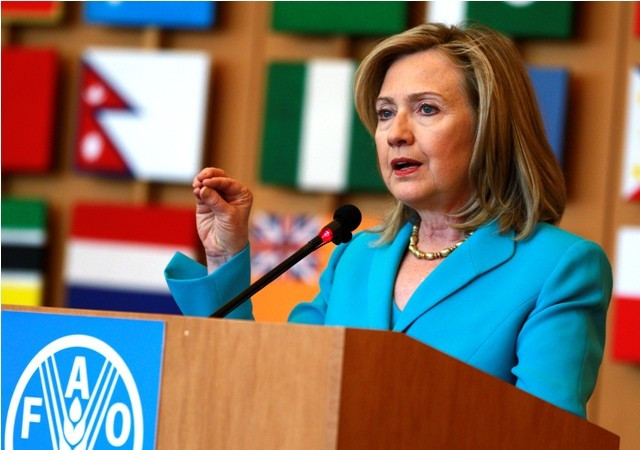Horn of Africa: More Preventive Measures Needed to Stop ‘Famine Cycles’, says Clinton [VIDEO]

U.S. Secretary of State Hillary Clinton on Thursday announced the U.S. government will provide additional 17 million dollars in humanitarian aid to the Horn of Africa region, of which 12 million dollars go to Somalia.
Talking at the International Food Policy Research Institute, Clinton said the U.S. government has given a total of 580 million dollars in humanitarian assistance to the region, including 105 million dollars which was announced by U.S. President Barack Obama on Monday.
"What is happening in the Horn of Africa is the most severe humanitarian emergency in the world today and the worst that East Africa has seen in several decades," Clinton said at the Washington-based institute.
For the last two years, Somalia, Djibouti, Eritrea and Ethiopia, have been devastated by severe drought, now affecting up to 12.4 million people according to the UN.
Somalia has been the hardest hit and the power struggle between the weak but UN-backed Somali government and an Islamist militants group called Al-Shabab, which control the areas the most affected by drought is adding to the urgency as aid working have been banned from al-Shabab territories, making it much more difficult to provide vital food and medical treatment.
Although efforts have been taken to help the starving people there, "a great deal more must to be done and must to be done fast, " said Clinton.
Insisting on the necessity to take preventive measures to avoid such she also urged long-term thinking on food security in order to prevent a same scale famine from happening again in the future.
"First comes a severe drought. Then crops fail, livestock perish, food prices soar, thousands of people die from starvation, most of them children, and thousands more pick up and move. Every few decades, the cycle repeats,' Clinton said.
She argued that the food shortages may be "triggered" by drought but not caused by it, putting responsibility on weak or non-existent agricultural system.
While emphasising on the need to "deliver lifesaving assistance," Clinton urged the U.S. to continue investing in long-term food security in countries that are "susceptible to drought and food shortages" and support infrastructure building, governance, markets and education.
© Copyright IBTimes 2025. All rights reserved.




















